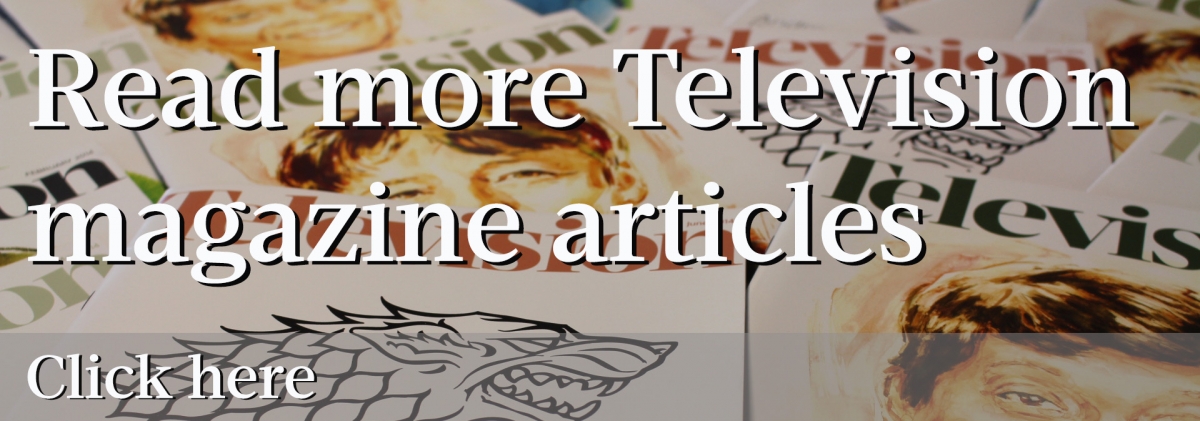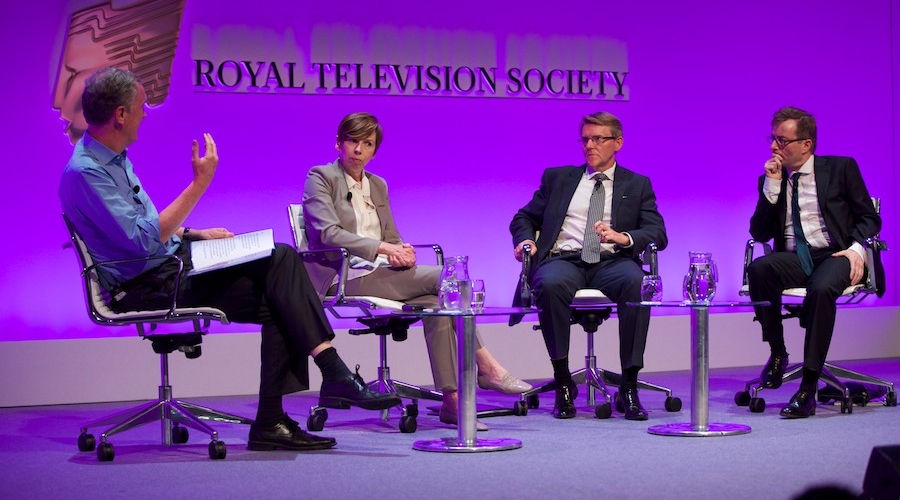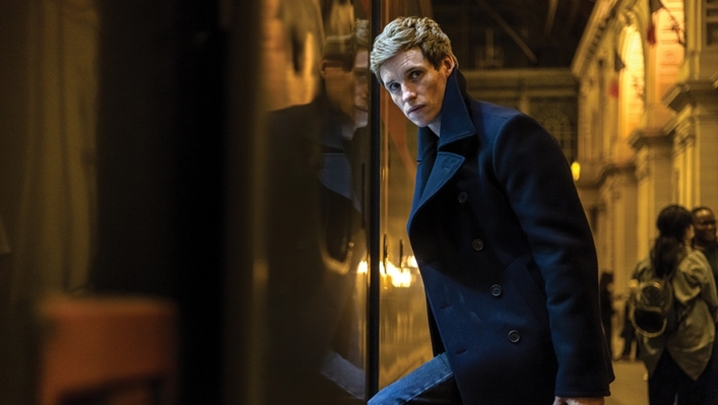Despite big challenges ahead, the leaders of BBC News, ITN and Sky News are bullish about their future.
Television news is going through a sticky patch, facing either cutbacks or audience flight – or both. Former ITN boss Stewart Purvis, who chaired the session, outlined the two biggest challenges facing news organisations. First, providing more news for less money. Second, declining audiences, particularly among the under-35s, who, since the arrivals of tablets and apps, have migrated in large numbers to online and mobile platforms.
BBC News, which announced in July that it is to axe 450 jobs (although the losses are mitigated by the creation of 195 new posts), is most under the cosh, argued Purvis.
The corporation has been ordered to break more stories by Director of News James Harding and to build its global news audience to 500 million by Director-General Tony Hall – all on an annual budget that is shrinking by £50m.
If that's not enough, Non Executive Director Sir Howard Stringer has called for more "character and personality" in the BBC's web presence, while the BBC Trust wants better mobile and online news, a wider news agenda and an increased impact in current affairs.
And, concluded Purvis, BBC News has to meet stiffer corporate commitments on gender, ethnic diversity and disability.
Addressing Fran Unsworth, the BBC's Deputy Director of News and Current Affairs, Purvis asked: "How could you possibly take £50m out of your budget and not affect the quality of the product?"
Unsworth pointed out that BBC News had already trimmed £50m from its budget, adding: "I challenge you and the audience to say you have particularly noticed a diminution of quality of BBC news?"
 Cutting a further £50m would be tough, she said, but "the fact that we've done it before gives me some kind of hope".
Cutting a further £50m would be tough, she said, but "the fact that we've done it before gives me some kind of hope".
Purvis asked ITN Chief Executive John Hardie whether the cutbacks at the BBC presented an opportunity for his company, which provides news to ITV, Channel 4 and Channel 5.
"The fact that they are going through a period of cuts doesn't make life any easier for ITN," said Hardie.
ITN had made economies in 2009, he recalled, and had introduced flexible working patterns and new technology rather than cutting its news coverage or key staff.
Noting the growing amount of news watched online, especially by younger audiences, Purvis suggested that, as TV news audiences decline, the commercial pressure on ITN from ITV, Channel 4 and Channel 5 would increase.
Hardie replied that in the past three months these three broadcasters had all awarded new licences to ITN, offering "a decade of significant commitment".
Vice News "has lifted the lid on the slightly seamier side of life in the UK" Ryley
But, responded Purvis, "Would there not inevitably be a push for a price reduction from your customers as they see the value of airtime around your programmes declining?"
No, reckoned Hardie, who added that in his five years at ITN he had "not yet had a conversation with broadcasters that [went], 'The ratings are down, we're losing advertising revenue, you need to cut the budget'."
Turning to Head of Sky News John Ryley, Purvis quoted his Cardiff University colleague and ex-BBC Director of News Richard Sambrook as recently saying: "It seems unlikely that spending upwards of £60m a year on a closed satellite infrastructure that delivers the news late to 1% or 2% of the available audience will remain a sensible use of resources."
"At the heart of a non-stop news organisation," responded Ryley, "we need the bedrock of the service of a 24-hour television channel supplying video."
That video is expensive, he admitted, but it is used for different outlets, including online and mobile platforms and, on the day of the RTS conference, it became available via Xbox 360.
The panellists discussed the impact of new players in the market, including Vice News, a channel aimed at the "connected generation".
Vice News, said Ryley, "has lifted the lid on the slightly seamier side of life in the UK, which television news arguably doesn't do enough of.
"I welcome Vice's entry into the journalism market. It is going to be a tough competitor and I think that it will sharpen our game. I like change and I like a bit of disruption."
Hardie, though, denied that organisations such as Vice were a threat to ITN. "They do something very different," he said. "Last week, their lead item was a very interesting piece about an outbreak of cholera in Haiti. The next piece was headlined: 'I got cocaine blown up my ass so you don't have to'."
Purvis pointed out that Vice was an increasingly respected news organisations – its reporters in the Ukraine had recently contributed to the BBC's coverage of the crisis in that country.
 From left: Stewart Purvis, Fran Unsworth, John Hardie and John Ryley (Credit: Paul Hampartsoumian)
From left: Stewart Purvis, Fran Unsworth, John Hardie and John Ryley (Credit: Paul Hampartsoumian)
"I didn't say they were bad; I was saying they don't do what we do yet," replied Hardie.
The news chief said that to cover a story such as the shooting down of the airliner in Ukraine, ITN had people on the ground simultaneously in Ukraine, Amsterdam, London and in Washington... "bringing to our audience a full summary and editorially well-put-together piece. That's not what [Vice] is doing."
Speaking from the audience, RTS President Peter Bazalgette doubted whether TV news would survive in its present form.
"Looking at the stage," he said, "I see one person running a news service paid for by the licence fee, another person providing news services to ITV and Channel 4 when those slots don't pay for themselves, and a third person who is a cost centre, not a profit centre, in Sky."
He continued: "You provide news services that we regard as the cornerstone of our democracy and you cost massive amounts of money – and there isn't a commercial model to support you.
"Never mind about the next 10 years, what about the next 30 – are you [still] going to be there?"
Ryley put his faith in Sky's new products, such as the Xbox 360 service, which "may make quite a big difference to our bottom line".
Hardie argued that "ITN is an entirely commercial organisation", a TV company that "has to and does make a profit" by supplying news to ITV, Channel 4 and Channel 5.
He added that ITN, which is expanding its production and already provides news programmes for newspaper websites, would also be looking at new services.
Unsworth said that Bazalgette's question illustrated the need for a public service broadcaster news service, however funded, "free from any commercial and political pressures. It would be a sad day for the UK if that were not to be the case going forward and we would be the poorer culturally for that."
Session Five, 'Have I Got News For You?' was produced and chaired by Stewart Purvis CBE. The panellists were: John Hardie, Chief Executive, ITN; John Ryley, Head of Sky News, BSkyB; and Fran Unsworth, Deputy Director of News & Current Affairs, BBC.
Sky vs ITN: cash before coverage?
John Ryley: 'On that rainy day in June 2012 when the Queen and Duke of Edinburgh were heading up the River Thames... ITV took the tennis from Paris, which I thought was a strange decision, whereas the BBC and ourselves... covered what I thought was an important national moment.
'The funeral of Baroness Thatcher in April last year... ITV chose to [air reports during] This Morning, whereas the BBC and ourselves... covered that event in full. I was surprised by that.'
John Hardie: 'Sky News is one channel [and] has all that airtime to fill.
'ITV News – and this is a choice for the broadcaster – lives in the reality of a commercial world, and saying that, because [the news] doesn't roll all day long for the [funeral] of Baroness Thatcher, it is somehow abrogating its duty in news is ridiculous...
'ITV and the other broadcasters live in that harsh [commercial] reality and very often when the news is big they will go open-end and they will go live, and we often supply that.'
Was BBC's report of Cliff raid too tabloid?
Fran Unsworth: 'Stories of this kind always give us problems... If a reporter came to you and said: "I've got this story that South Yorkshire Police are investigating a historic sex allegation against Cliff Richard and, what's more, they've told me they are going to search his house tomorrow and they've even sent me an aerial photograph of the house" – do you think it's up to me to say I don't think we'll tell the viewers about that, because it's not the sort of story the BBC does?'
Can television news ever accommodate activism?
Q Stewart Purvis: Jon Snow came back from Gaza and he recorded in the Channel 4 News studio a video that ended with the words, "We can make a difference".
This was not shown on Channel 4 News, but it was on the Channel 4 website. Do you believe that what Snow said online [would have] met the impartiality requirements of Ofcom had it been show on television?... Could it have been shown on TV?
A John Hardie: We would have scrutinised it more because it was Jon speaking without a script to camera, but we don't open up television broadcast news to that kind of sentiment or expression... It was a ventilation from Jon who, after 40 years, if anyone's earned a right to do that, I think he has.
A John Ryley: We expect broadcasters... when they go on a story to almost neuter or cauterise their emotion to what they see... Jon's seen a lot of suffering over the past 40 years and we should respect his emotions.
Q Stewart Purvis: Would you have shown it?
A John Ryley: I think I might have done, [though] signposted.
A Fran Unsworth: Absolutely not. And, if one of our presenters had done something like that in a private capacity on YouTube, we would have had to have said, "Sorry, this isn't appropriate in terms of your public-facing role as an impartial presenter of BBC news programmes.''
Q Stewart Purvis: [Sky] started a... service for younger viewers and you called it, "Stand Up Be Counted". This is the language of activism. The campaign you're running is to get young people to connect more with politics, which sounds admirable.
Before the last general election you ran a campaign for a prime ministerial debate. [Should] TV news organisations do campaigns?
A John Ryley: They should do campaigns if they are in the interests of journalism... I felt very strongly that the time had come, given the disregard for politics in Britain after the expenses scandal and the economic woes of this country, that our three leaders should be scrutinised on television.
So, yes, I campaigned for it. Stand Up Be Counted is a campaign to encourage youngsters to get interested in news and current affairs and it is the right thing to do.
A Fran Unsworth: We don't do campaigns... Where they are matters of public debate we have to take a neutral position – that's what our Charter says... Having said that, we are allowed to campaign on matters of press freedom, broadcast issues and things that affect our industry.







